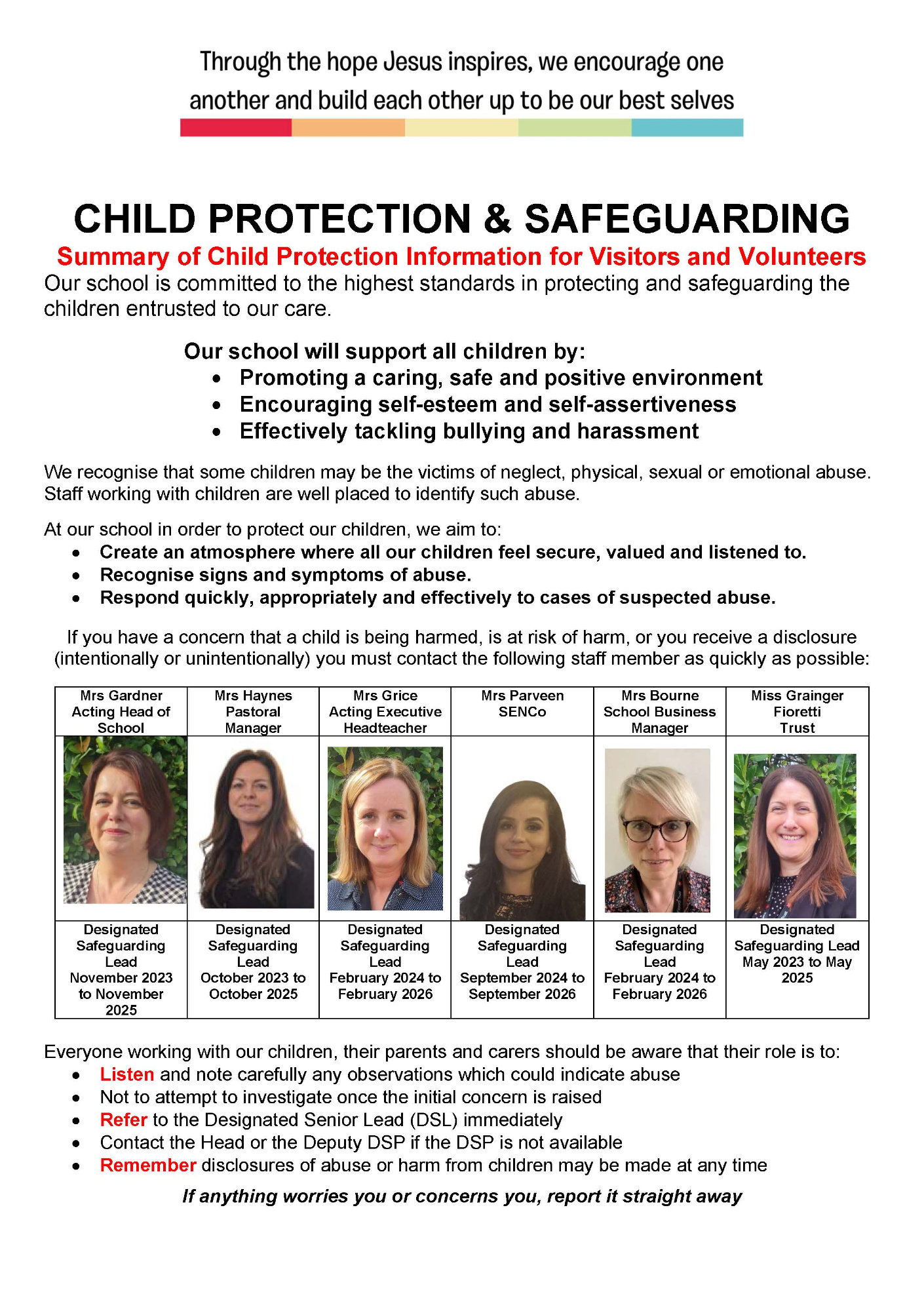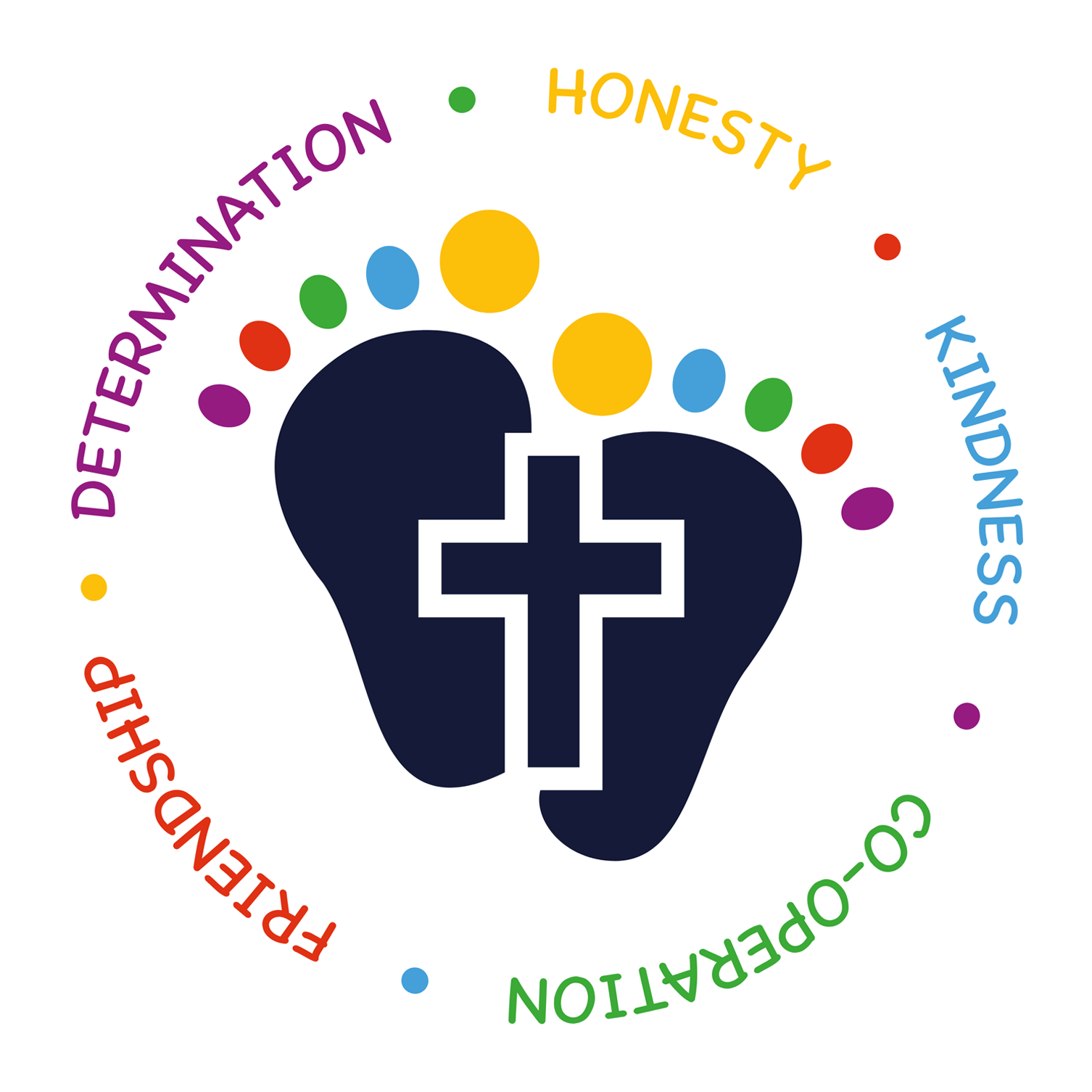Safeguarding
Who To Contact If You’re Worried About A Vulnerable Adult Or Child | Birmingham City Council
Operation Encompass
Our school has been given the opportunity to take part in a project that will run jointly between schools and West Midlands police.
Operation Encompass is the reporting to schools, prior to the start of the next school day, when a child or young person has experienced, any domestic abuse.
Operation Encompass will ensure that a member of the school staff, (DSL) known as a Key Adult, is trained to allow them to liaise with the police and to use the information that has been shared, in confidence, while ensuring that the school is able to make provision for possible difficulties experienced by children, or their families, who have been experienced a domestic abuse incident.
We are keen to offer the best support possible to all our pupils and we believe this will be extremely beneficial for all those involved.
You can see more about the program here: Operation Encompass
Government advice for parents and carers when choosing out of school care:
The guidance is intended to help parents and carers choose a safer out-of-school setting for their child.
The guidance covers:
- community activities
- after-school clubs
- supplementary schools
- tuition
- music lessons
- sports training
-
other activities for children that take place without their parents’ or carers’ supervision, that are not a:
- school
- college
- 16 to 19 college
- provider caring for children under 8 years old registered with Ofsted or a childminder agency
Free support available from Birmingham City Council
Birmingham Children’s Partnership: From Birmingham with Love
We’ve all been through a tough time with Covid-19 and lockdown. For many families it doesn’t get easier during the summer holidays, which is why we’re here to help. Here are some of our partners’ most used services and support, which might make life a little bit easier…
- Online parenting course. We’ve pre-paid for every parent in Birmingham to access a parenting course. Just enter the access code “COMMUNITY” at the top of the page to claim. There are courses for parents, carers and grandparents of children from bump to 19. Learn about how your child develops, and get tips to manage their behaviour.
- Mental health support. In these difficult times we have to look after our mental health. For young people aged 11-25 there are forums, guides and counselling available at Kooth. If your child 0-25 needs support, get in touch with Pause by calling 0207 841 4470 or email. Adults can get support from MIND by calling 0121 262 3555. Or for urgent help call Forward Thinking Birmingham on 0300 300 0099.
- Financial help. If you’ve lost your job, or are struggling for food or rent there are services that can help. Local welfare provision can make a big difference if you are in a crisis and need food, fuel or basic white goods. Discretionary Housing Payments may be able to help with rent. And there are food banks across Birmingham that are here to help.
- Domestic abuse. For women and children affected by domestic abuse please see guidance or confidentially contact Birmingham and Solihull Women’s Aid. For Men, please contact Respect.
- Problems with drugs or alcohol. A new, discrete app called Staying Free is available on Android or Apple. Use the code “birmingham11” for pre-paid access. To speak to someone call Change Grow Live.
- Bereavement support. It’s a terrible time to lose a loved one — you can get help by calling 0121 687 8010 or from Cruse.
- Early help for families. If anyone in your family needs more help, from public services or community groups, then please contact our voluntary sector local leads. We have ten areas which can connect you to support across the city.
If you are worried about a child, please call Birmingham’s Children's Advice and Support Service on 0121 303 1888. In an emergency, including child abuse, contact the Police on 999. You can also chat to the Police.
The Birmingham Children's Partnership Offer
Help for all families and children in Birmingham - help with food, finances, parenting, drug and alcohol abuse, bereavement, domestic violence and mental health.
Early Help Support for Families available from Birmingham City Council
NHS Mental Health Support during Lockdown
0-18 year olds
7 days a week (10am-6pm):
- 0207 841 4470
- askbeam@childrenssociety.org.uk
Support for Key workers
7 days a week (9am-11pm):
- 0121 663 1217
Local help available
Further information about NHS mental health support during Lockdown for all ages
-
The Waiting Room
The Waiting Room is a key website which signposts you to the services available in Birmingham and Solihull. This includes a wide range of community support services.
-
NSPCC
Wide range of resources and information available to support parents and children.
Mental Health and Well-Being Websites
-
Young Minds
Information and support material for parents related to mental health, well-being and responding to abuse
-
Action for Happiness
This website includes 10 keys for happier living, and a monthly calendar of actions for happiness that you could try.
-
Action for Children
Advice and support for parents on how to encourage children's well-being.
-
NHS guide to mental health services
Guidance about mental health services that are available.
-
Forward Thinking Birmingham
Mental health support and counselling for children, includes information about their drop in centre "Pause" in Digbeth.
Children at risk of sexual abuse:
|
Lucy Faithful Foundation Helpline: Talk to us if you’re worried about child sexual abuse |
|
Our confidential child sexual abuse prevention helpline (0808 1000 900) is available for anyone with concerns about child sexual abuse. Callers do not need to give identifying information, so can remain anonymous. We speak to thousands of people every year, and help them act to protect children and young people from sexual abuse and exploitation. If you’re not ready to speak to someone yet, you can get confidential support through our live chat and secure messaging service. The Lucy Faithful Foundation have also created 12 short films for parents and carers which can be accessed here. |
Domestic Violence and Abuse
-
Government advice about domestic abuse during lockdown
Includes signposts for support
-
Refuge
Freephone 24 hour National Domestic Abuse Helpline
-
Birmingham and Solihull Women's Aid
Information and support for women and children affected by domestic violence and abuse.
-
Relate Birmingham
Includes information about relationship and family counselling and support.
-
Solace Women's Aid
Information and Support
-
Support if you are worried about hurting someone 0808 802 4040
If you are concerned that you or someone you know may be an abuser, there is support available. Respect is an anonymous and confidential helpline for men and women who are harming their partners and families. The helpline also takes calls from (ex)partners, friends and relatives who are concerned about perpetrators.
Modern Slavery
Modern slavery is a harmful and hidden crime and its victims may be especially isolated and hidden from view during the coronavirus (COVID-19) outbreak.
Help and support is available for victims of modern slavery. This guidance sets out what modern slavery is, how to recognise the indicators of modern slavery and how to refer suspected cases of modern slavery to the appropriate services.
Worries about terrorism or terrorist attacks
-
Talking to children about terrorism
Resources and advice for parents
-
NSPCC
Advice for parents on protecting children from radicalisation
-
Childline
Resource for children about their worries about the world
-
Educate Against Hate
Advice for parents on how to support children trying to understand terrorist attacks
-
PSHE - Primary schools resource
Resource to use in schools to support discussion of terrorist attacks
Mental Health & Wellbeing
NHS urgent mental health helplines
New 24/7 all ages NHS urgent mental health helplines have been rolled out across the country in 2020. They provide expert advice and assessment for children and adults facing a mental health crisis. People can call for themselves, or on behalf of someone else. We encourage the promotion of these helplines, and have developed public facing lines:
If you need help for a mental health crisis, find your local 24/7 urgent mental health helpline at nhs.uk/urgentmentalhealth.
You can call for:
- 24-hour advice and support – for you, your child, your parent or someone you care for;
- help to speak to a mental health professional;
- an assessment to help decide on the best course of treatment.
If your child needs urgent mental health support or advice, you can contact your local mental health helpline via nhs.uk/urgentmentalhealth. You can call the helpline for 24-hour advice and support for you and your child, to speak to a mental health professional or for an assessment to help decide on the best course of care.
-
Self-referFor physical or psychological symptoms, you can call the GP, your usual practitioner, or NHS 111 as appropriate. You can also self refer to local Psychological Therapy services that can help with common mental health problems like stress, anxiety and depression.
Eating Disorders and Concerns
-
BEAT Eating Disorders
Support Services and Information
There are helplines and other resources available on the BEAT website, including a GP guide and a guide for Friends and Family which you can find below.
From the BEAT website:
Looking after a child
• Remember, it’s important to address the thoughts and feelings causing an eating disorder, not just the behaviour. There are many different therapies that can do this, and no single therapy is the best choice in all cases. Depending on how young they are, you may have a lot of say over their treatment, so remember that if your child isn’t responding well to one form of treatment, they may respond better to another.
• Be mindful of other children and how the eating disorder might be affecting them. They may need their own emotional support. Our leaflet, “Caring for Someone with an Eating Disorder (for under 18s)” may be useful for siblings of the person with the eating disorder. It is available to download on our website.


